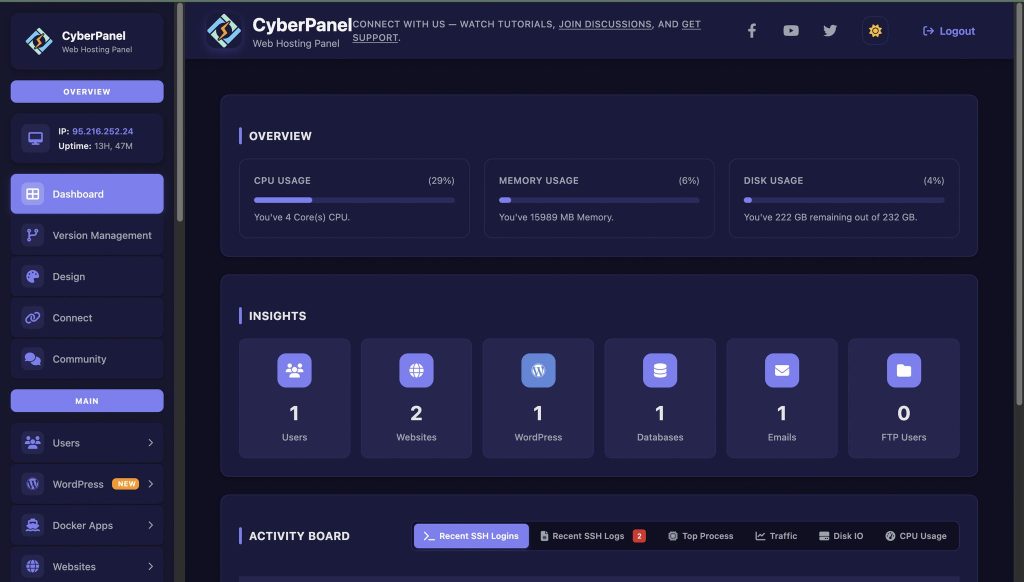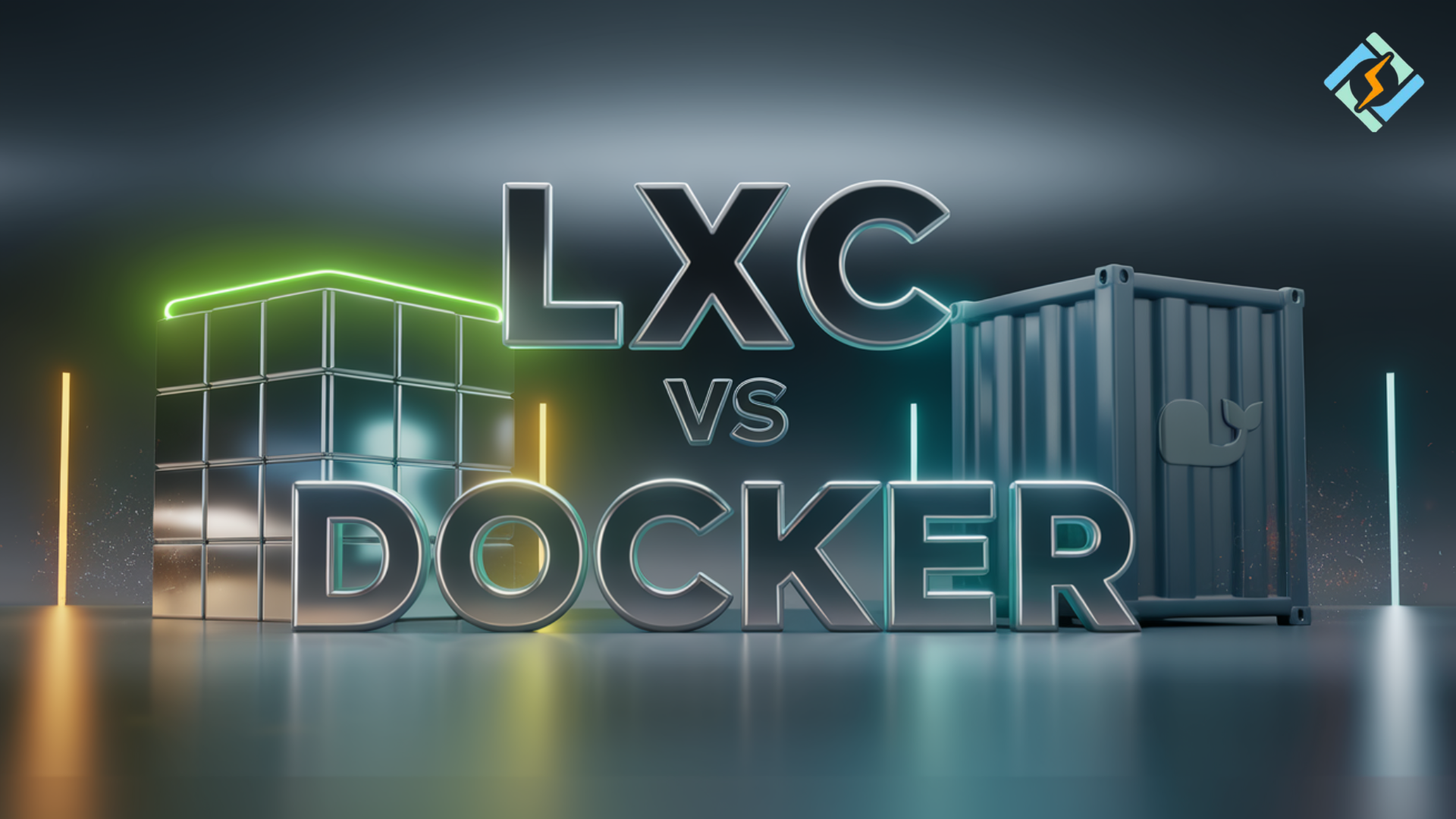When it comes to containerization in Linux, there are two popular tools to rage a debate: LXC vs Docker. Both have a way to isolate applications, but they execute differently. LXC (Linux Containers) is focused on lightweight virtualization at the OS level, while Docker containers focus on packaging applications and deploying them more simply.
For system administrators, developers, and DevOps engineers, questions of which tool is best to streamline workflows often arise. Most Docker vs LXC discussions tend to be demonstrations of speed, flexibility, ecosystems, etc; however, in the end , it depends on the aspects of the project.
In this Docker vs LXC guide, we will examine LXC containers vs Docker, look at the mechanics of how they each work, and ultimately compare and contrast them side by side. You should be able to determine, by the end of the article, which tool is the best for your use case – system-level virtualization, or application-based containerization!
What is LXC in Linux?
LXC, or Linux Containers, is a virtualization technology that functions at the OS level. It is possible to run multiple isolated Linux systems (which are called containers) on a single host using LXC. Each LXC container acts like a lightweight virtual machine, having its own process space, network, and user environment.
What is Docker?
Docker is a platform designed to build, package, and run applications inside containers. Unlike LXC, Docker is focused on applications rather than full OS environments. Docker provides tools, registries, and orchestration options that can package and deploy applications much faster and at scale.
Difference Between LXC and Docker
The biggest difference is that LXC is more like a lightweight virtual machine and offers full system containers, while Docker offers application containers, which make it easier to deploy and manage applications in a consistent environment.
Get exclusive access to all things tech-savvy, and be the first to receive
the latest updates directly in your inbox.
LXC Container vs Docker: Key Comparisons
| Feature | LXC | Docker |
|---|---|---|
| Type | System container | Application container |
| Isolation | OS-level (full Linux environment) | Process-level (application only) |
| Use Case | Running multiple OS environments | Packaging and deploying apps |
| Flexibility | More control over system configs | Easy app portability |
| Ecosystem & Tools | Limited ecosystem | Large ecosystem with registries |
How to Use LXC in Linux: An Illustration
# Create an Ubuntu container
lxc-create -t download -n mycontainer -- -d ubuntu -r focal -a amd64
# Start the container
lxc-start -n mycontainer -d
# Attach to it
lxc-attach -n mycontainer
How to Use Docker: An Illustration
# Pull an Ubuntu image
docker pull ubuntu:20.04
# Run a container
docker run -it ubuntu:20.04 /bin/bash
Linux LXC vs Docker: Which to Choose?
- Use LXC when you require full operating system environments, system testing, or the need to run multiple Linux distros.
- Use Docker when you want a way to immediately build, package, and deploy apps across environments.
Docker Container vs LXC: Performance
- LXC provides more granular control, yet requires configuration time.
- Docker is implemented for speed, portability, and developer workflows.
- Most cases will be quicker to deploy with Docker, while LXC will result in increased flexibility for system-level tasks.
CyberPanel’s Role with LXC vs Docker

CyberPanel is a next-gen web hosting control panel. leverages its Docker integration for containerized deployments. It allows the user to pull, manage, and run Docker containers straight out of its GUI, allowing for easier server management. While the comparisons make LXC sound more powerful, CyberPanel’s focus on Docker is due to its more functional integration, scalability, and lower cost for hosting environments.
Final Thoughts!
The choice between LXC and Docker is based on what you are seeking to achieve. Choose LXC if you need system-level virtualization, and choose Docker if you need easy deployability of applications with scalability. For most developers and server administrators, Docker is the default choice.
CyberPanel’s support for Docker makes managing application containers much easier. For a stable environment, use CyberPanel and Docker for excellent results.
People Also Ask
What is the difference between LXC and Docker?
LXC provides full OS-level containers, while Docker focuses on application-level containers.
Which is faster, Docker or LXC?
Docker is generally faster to deploy, while LXC offers more flexibility for system-level tasks.
Can I use Docker inside LXC?
Yes, it’s possible, but performance may vary depending on configuration.
Is LXC better for system virtualization?

Yes, LXC works like lightweight VMs, making it ideal for system-level virtualization.



